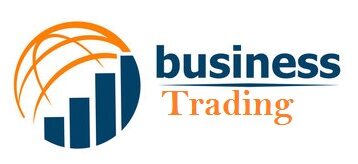As small businesses grow, the payable tax increases even more. Small businesses fall into the tax range where one needs to pay everything from self-employment to state income taxes. But with some strategies, these taxes can be saved or at least minimized.
Proactive tax preparation might be more advantageous if your organization brings in more money. This is where the need for a small business accountant in pembroke pines comes in. Most small firms will have to employ several of the following tax-planning techniques.
Maintain Accounting Records in sequence.
Accurate records kept during the tax year will help you expedite the filing process. Note all the cash flow, capital gains, and business expenses and simplify the tax preparation. Maintain a record of every transaction you make, which must include bills, investments, and receiving money.
Maximize Your Tax Deduction Opportunities
Deductions lower the amount of business income subject to taxation, and keeping track of and maximizing your deductions can result in substantial cost savings. By closely monitoring your business expenses, you may optimize your tax deductions. Keeping yourself organized, staying current on tax rules, and seeking advice from a tax expert will help you maximize your deductions. Here are a few typical deductions for businesses:
- Deductions for home offices
- Phone and internet costs
- Both entertainment and travel
- Expenses associated with education
- Costs for professionals
Home and Office deduction
Most small business owners work from home, but they don’t know that it can be a deductible business expense. Note the areas of the house where the business is conducted and record the costs related to those areas. These include internet access, insurance, or workplace supplies like a printer.
For example, with your home office, the costs must be related to your job. However, they may cover maintenance or fuel. If it fits your budget, researching adding novated leases to your benefits package can be a smart choice.
Create or Add to a Retirement Plan
There are several ways that retirement plans might reduce your tax liability.
Income that is taxable for an individual. Deduct the contribution from the taxable amount from the retirement account with the help of a retirement account. Many small business owners don’t know that a retirement account can save a lot of taxable amounts from the overall revenue generated.
Taxes on payroll: Payroll taxes are not due on the amount your employer contributes to a retirement plan when you make a matching contribution. This makes it an economical method of paying staff members.
Company tax liability: Tax-deductible employer contributions and certain fees paid to the retirement plan’s administrators may be subtracted from your total tax liability.
Consult a Tax Advisor
Tax planning techniques are intricate. Many restrictions apply to specific situations and types of organizations, and tax laws are always changing. A tax expert can help you navigate this process and make the best choices to minimize your tax liability and position your company for success. They can assist in the following ways:
- Keep abreast of any tax developments that can affect your company
- Ensure you adhere to all applicable local, state, and federal laws
- Assist you with disputes and audits
- Assist in creating a long-term tax plan consistent with your company objectives
- Give you advice on how your taxes may be affected by business actions
Conclusion
Investing in your firm can result in tax savings by spending pre-tax money that would have otherwise been after-tax. To be eligible for further deductions, you should constantly be on the lookout for business expenses in your regular spending. An essential maxim for business owners is to convert as many after-tax dollars into pre-tax dollars as they can within the law.

